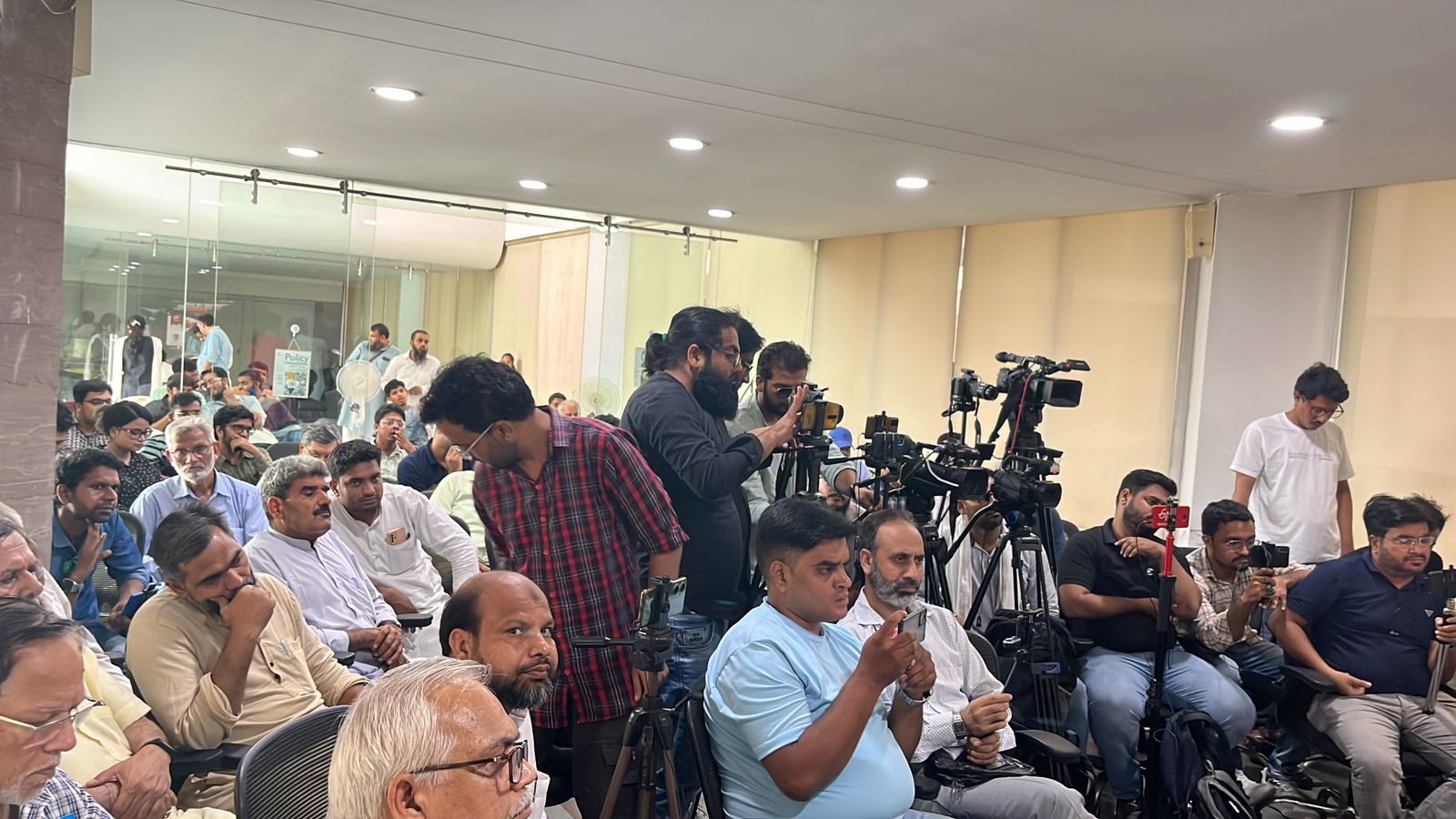TCN News
An 11-member fact-finding team from the Association for the Protection of Civil Rights (APCR) visited communal violence-affected areas in Haryana to present the ground realities and prevailing tensions in the areas, as well as the roles of law enforcement and the administration.
The fact-finding team recorded statements of responsible residents working in the area as well as the accounts of affected families of persons arrested by the Nuh Police.
Background of the Communal Clashes
On July 31, communal violence erupted in Haryana’s Nuh district after a Hindu procession organised by the Vishwa Hindu Parishad (VHP) and the Bajrang Dal (BD), both affiliated with the ruling Bharatiya Janata Party, turned violent.
Following the violence, many instances of anti-Muslim violence in response to the Nuh clashes were reported from different parts of Haryana like Sohna, Gurugram, Palwal, Bahadurgarh, and Faridabad. Six people were killed in the violence, including two cops. A mob stabbed to death a 22-year-old Muslim cleric in Gurugram, which is home to several multinational corporations. Reports of hate assemblies calling for boycotts and attacks against Muslims were reported from different cities.

Administrative Action And Inaction During Violence
According to the fact-finding report, despite being warned of potential unrest, including hate speeches and provocative videos shared by Monu Manesar and Bittu Bajrangi, the administration failed to take timely and appropriate action. These warnings went unheeded, which contributed to the escalation of violence.
“The police’s inability to maintain law and order was evident, as shown by the rescue of ACJM Anjali Jain and advocates by locals during the violence. This exposed the administration’s failure to ensure the safety of citizens and protect public property,” said the report.
“Violence on July 31… was premeditated and planned, with evidence communicated to the administration prior to the outbreak. The media’s inflammatory content further fueled the hostile environment,” the report said.
According to the report, multiple witnesses pointed to police complicity in the violence. “Videos and accounts suggested that police actively participated in the vandalism, destruction, and intimidation during the riots, undermining the trust citizens have in law enforcement,” it said.
Targeted Arrests of Muslims in Nuh
It claimed that police arrests were biased, targeting Muslims while ignoring any potential involvement by Hindus. “This skewed approach to arrests further deepened the divide between communities,” the report stated.
Meoli is one such Nuh village where locals have complained about a brutal police crackdown. On August 1, nine men from one family were picked up at 5 a.m. Chaudhary Shfaat, a 77-year-old landlord, alleges that police are making arbitrary arrests in his village.
“The arrested individuals are not being allowed to see their families. Due to fear, the families of victims didn’t report their grievances,” said the report.
Jaan Mohammad shared testimony about his son Shahrukh, a 30-year-old guard who was arrested on 1 August. The Nuh Police Station invoked various sections of the Indian Penal Code, as well as provisions of the Arms Act, against Shahrukh.
Similar detentions and arrests have occurred in the neighborhood of Meoli, in villages such as Khedi and Murad Bas, which are similarly desolate.
The widespread dread among inhabitants, particularly Muslims, drove many to seek refuge in mountains and fields, reflecting a sense of insecurity and distrust in the authorities.
The fact-finding team also spoke with Chaudhary Aftab Ahmed, the local Congress MLA in Nuh. He stated that previously, people did not come forward, but now people have started to come forward with complaints. “They have started submitting complaint applications, but they still haven’t been converted into FIRs yet. Their intention is to approach the court under Section 156(3). Regarding questions about Monu Manesar, he stated that the Haryana government does not want that he is arrested,” it said.
Targeted Demolition of Muslim Properties in Nuh
Following the violence, properties belonging to the Muslim minority were demolished under the pretext of lacking proper documentation.
The violence and subsequent actions by the administration led to significant economic losses for the community. Many businesses were destroyed, affecting livelihoods, especially among the Muslim population.
The authorities justified the demolition by claiming that the properties lacked sufficient documentation, an assertion that Advocate Hussain strongly refuted. “Deceptive backdated notices left residents with no chance to defend their rights, leading to the ruthless destruction of their homes and businesses within mere hours. The notices are written in backdate and then stuck to the gates of properties and the properties are being demolished in an hour or so afterward,” he said in the report.
“Officials allege that demolished structures were built on government land and were used by the suspects during the recent communal clashes which up until now has not been proven to have any basis,” it added.
Regarding the killing of the 22-year-old Muslim cleric, the fact-finding team spoke with the Commissioner of Police in Gurugram on 2 August, who informed them that 55 people had been arrested. She also mentioned that appropriate actions will be taken against those who are posting on social media.
The full report can be accessed here: https://qrco.de/beEM6B


